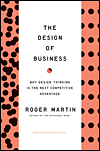This past Saturday evening, I made my way downtown to the Japanese American National Museum for a panel discussion on one of my favorite topics, because it is also very personal one - the mixed race experience in America. The actress Amy Hill, herself part Finnish and Japanese, was a very animated and likeable undisciplined moderator. The two panelists were writer and photographer Kip Fulbeck (who is a mix of Chinese, English, Irish and Welsh) whose work focuses primarily on identity politics. And to his left sat Dr. Maya Soetoro-Ng (half Indonesian and half white American), who works to promote multi-cultural education and is currently, an education specialist at the East West Center, which promotes dialogue and exchange between the U.S and Asia. I confess, it is rather tough to see Dr. Maya Soetero-Ng, very accomplished in her own right and not think that when she picks up the phone to call her brother, the most powerful man in the world, answers. But Barack Obama for the most part rarely came up in the discussion.
According to the statistics that were presented in the introduction, mixed race marriages make up 15% of all marriages in this country which is somewhat incredible given that only 43 years ago, they were still illegal in the U.S. Mixed race people are also apparently the fastest growing demographic in this country - and yet the stories and needs of this demographic are still largely under-researched and ignored.
The first question to the panel addressed their childhood. Maya Soetoro-Ng spent most of her childhood in Indonesia, often feeling out of place and seen as too American by her classmates. While in America, she was viewed as too exotic. Kip Fulbeck was viewed by his mother's Chinese side of the family as the white foreign kid but in school in San Francisco he was alienated as the Chinese guy. The forms he had to fill-in in school allowed him to check only one race (a situation well-known to any mixed-race individual), which ultimately forced him, as a kid to have to pick regularly between cultures, identities, parents. For Kip, the race that he ticked on the form, was haphazardly based on which parent he felt closer to that day. These daily acts of being forced to select only part of your identity, Kip expressed, often unbeknownst to you, takes its toll over time. The only role model or kindred spirit, Kip sadly admits having as a child was Spock on the television show Star Trek, since on the show Spock is described as half Vulcan, half human and often spoke of the duality and tug-a-war he felt. I could understand how he felt, Kip commented.
During this discussion, there wasn't much presented that was entirely new to me - since I think most mixed-race people have somewhat similar experiences. What I did appreciate however, was their discussion on how they are choosing to raise their own mixed race children acknowledging their own complex cultural identities. Maya regretted never haven taken her children to Indonesia because she can't share with them, what she calls her own 'umbilical stories' which she grew up hearing. The "best thing we can do for our children," she continued, "is to given them as many stories and layers as possible so that they can make their own choices later in life." Kip added that identity is such a personal decision, "but we live in a world that always wants to decide what we are." It is important he agreed to take children to traveling to different cities and to ensure that they are exposed to different people.
Both educators, both Kip and Maya agreed that education in the U.S has a long way to go to be more inclusive in subjects, histories, cultures covered. Kip acknowledged that while changes were being made, they were moving at a glacial pace. Too often diversity is treated as an afterthought, a token image. It is not an organic process or integrated into the whole.
When you are mixed and raised globally as I was, finding a sense of home is often a struggle, so when Maya was asked about how she deals with this dilemma my ears perked up. For her, her mother Ann Dunham was the connection to all her worlds, her tether. But when she died, Maya says she became rather lost. It is then she reflected back to the time she traveled around Pakistan with her mother, and at one point, she found herself straddling the border between Pakistan and China, and documenting that experience through photography she started to develop her sense of comfort resting between worlds. Now she also finds home in her husband and his family; being Chinese Canadian - they keep her connected to her Asian sensibilities. She also finds home obviously in her children.
When you are mixed race - your facial features are for the most part often a little more ambiguous. To many people, you make look somewhat familiar but not quite. Traveling through Egypt, I was repeatedly claimed as their own despite my appalling attempts at Arabic. When I was in Turkey, everyone thought I was Turkish and spoke to me in Turkish. When I returned back to New York City, that same day several women in line at a drugstore, insisted on speaking to me in Spanish - disgusted at my complete lack of knowledge at what they assumed to be my native tongue. I've had people stand in corners at parties, guessing in hushed tones what my mix was - as a party game. I've had people come up to me in grocery stores very randomly to ask if I am Native American, or Hawaiian, or Thai or Filipino or something else.... My light brown skin and nebulous features has allowed me to pass as a local in many parts of the world - until of course I open my mouth. I never thought much of that until Maya pointed out that everywhere she goes people tell her that "you look just like my niece." By being claimed more frequently, she says, by looking like someone's niece, there is an immediate sense of implied trust. It makes it easier, she expressed to bring tougher topics or more unusual comments to the table for discussion.
Shortly after that the panel wrapped up and made their way out to the reception. It was now time for wine and cake, book signing and more pictures.
6.15.2010
Being Mixed Race
Subscribe to:
Posts (Atom)






























